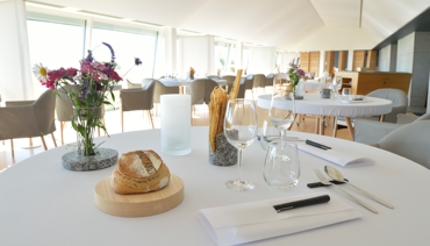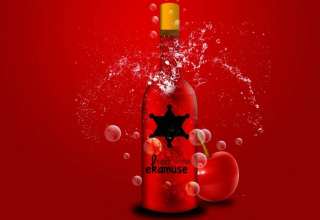As French chef Sebastian Bras begs to be stripped of his Michelin stars, Adam Lechmere asks if winning awards is really worth the hassle
Kitchens are dangerous places. I remember Raymond Blanc telling me how – as a stripling in some great French kitchen – he’d criticised a sauce and been very nearly brained by a cast-iron pan thrown at his head.
Anyone – from George Orwell to Anthony Bourdain – who has worked in a top-end kitchen knows that heady mix of pressure and aggression that seems forever on the brink of boiling over. Gordon Ramsay (himself reduced to tears by Marco Pierre White, a lifetime ago) has made a fortune out of it with programmes that could be seen as masterclasses in bullying.
The intensity of the pressure is in proportion to the celebrity of the restaurant, and to win a Michelin star – let alone three – is to have the door opened on the most rarefied heights of renown.
But once you’ve won them you have to keep them. Michelin inspectors visit unannounced. And of course, every diner, many of them connoisseurs of fine food, is a judge. Every dish, from amuse bouche to main, must be perfect.
Sébastian Bras (main picture, front), of Le Suquet restaurant in Laguiole in southwest France, has decided that frankly it’s not worth it, and he’s begged Michelin to relieve him of the three stars won by his father two decades ago. In a Facebook video released this week he announces, “Today, at 46 years old, I want to give a new meaning to my life … and redefine what is essential.”
He explained, “Every meal that goes out could be inspected. That means that, every day, one of the 500 meals that leaves the kitchen could be judged.”

Some remain cool-headed under that kind of scrutiny. Atul Kochhar of Benares, the first Michelin-starred Indian chef, told me, “I’ve always cooked for customers and things I want to cook. I was never guided by accolades and achievements. I continue to be the same – hence don’t feel pressure.”
Others are not so lucky. In 2003, Bernard Loiseau was found dead with a rifle by his side. He ran the three-star Hotel de la Côte d’Or in Burgundy, as well as several other restaurants. Loiseau had just been demoted from 19 stars to 17 in another guide, the prestigious Gault-Millau, and was reportedly devastated – and fearful for his Michelin ranking. One colleague said he had told him if he lost his stars he would kill himself.
There were undoubtedly other things going on in Loiseau’s life, and fellow chef Paul Bocuse’s comment, ‘I think Gault-Millau killed him’, was unfair, but there’s no doubting the stresses successful chefs are under.
And often it’s not the owners who feel it most. “If you don’t succeed, or if your boss doesn’t succeed, you may lose your job. That can mean pressure,” says Shaun Hill of the Walnut Tree in Abergavenny in Wales. Hill’s an elder statesman – he won his first Michelin star at Gidleigh Park in Devon in the 1990s – and he views what he calls “the whole rigmarole of awards” with detachment.
“I understand Sébastian Bras but I don’t entirely agree with him. The whole industry works on the guidebook circus. That’s what drives custom into places. Of course it brings pressure, and he obviously didn’t want that. But you have to cook for yourself. If you cook for guide inspectors, that way madness lies.”
Hill doesn’t say it, but he implies that this is all a bit of a first world problem. “There’s pressure in other professions. Heart surgeons for example. Someone dies if you f*** it up. It’s slightly different.”
To be fair, Bras seems to have the thing in perspective. He has said that he’s fully aware of Loiseau’s tragedy and he’s definitely “not in that frame of mind.”
In the end, the loser in this story is Michelin itself. They have given out a terse statement to the effect they’d give the request “due consideration” but I’m sure they don’t welcome this particular kind of spotlight.
“In a way, it’s a bit of non-story,” Will Beckett, the proprietor of the London chain Hawksmoor says. In today’s restaurant world, there are far more important considerations than Michelin stars.
“Michelin still represents excellence, but it’s a certain kind of excellence. They have not succeeded entirely in getting away from that type of stiff French formality. It was very important 20 or 30 years ago but now? I don’t know anyone my age [he’s 40] who when they go out thinks, ‘Michelin’.”






